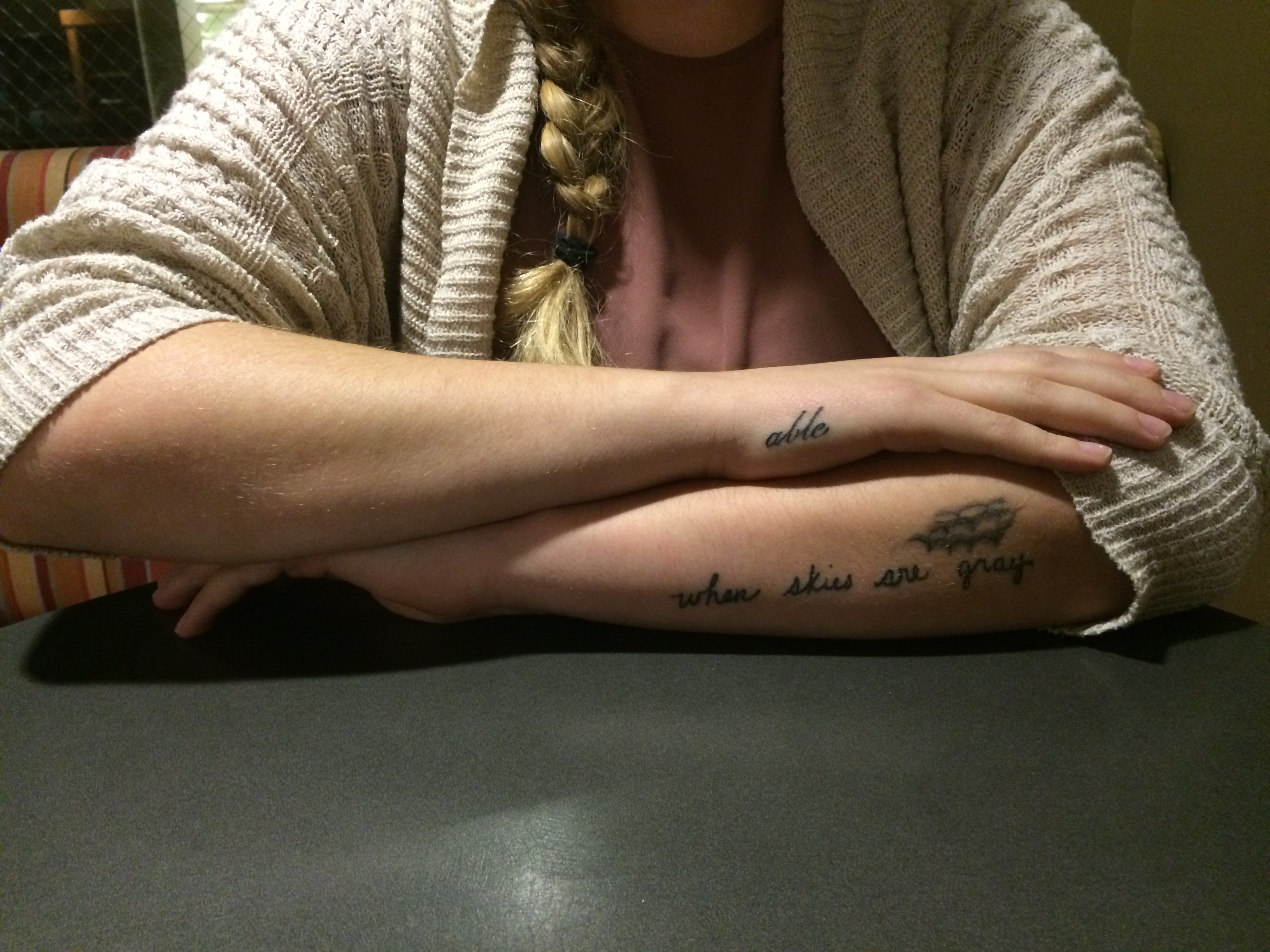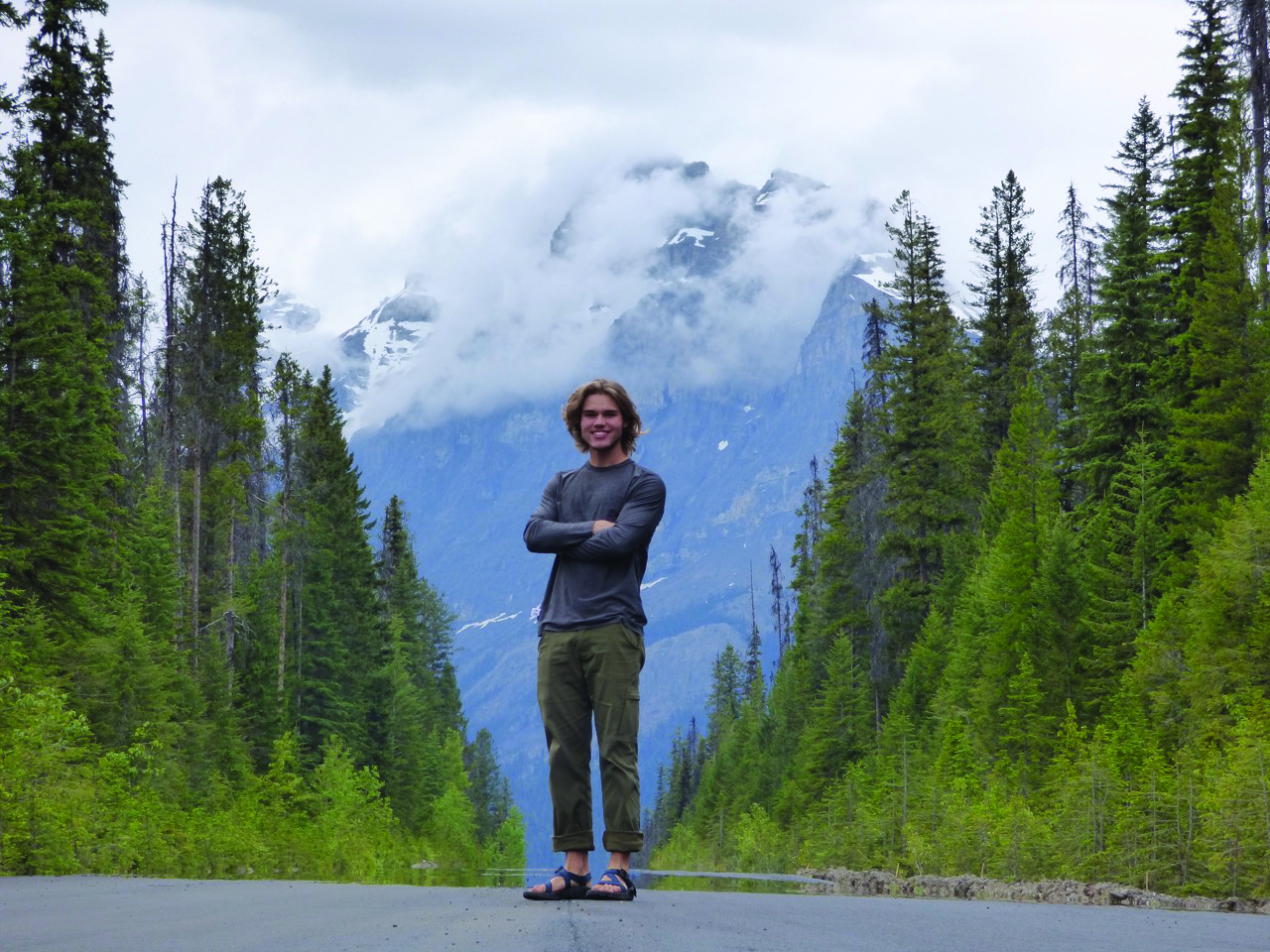
LIBBY POSTOVOIT
Copy Editor
postovlg@plu.edu
If you look closely along the side of first-year Ayanna Cole’s right hand, you’ll notice the word “able” tattooed across it. “It really applies to me now,” she explained. “I feel like I can do anything I put my mind to.”
“Able” is a modest assessment of Cole’s talents. Not only does she fulfill her academic responsibilities, but she also manages “Redefining Disabled,” the campaign she spearheaded to start dialogue about disabilities.
Born with Spina Bifida, a condition that results in paralysis due to undergrowth in her spinal cord, she knows the prejudices people with disabilities experience firsthand.
“One defining moment was when I was walking through the halls one day,” she said. “An adult looked at me and laughed in my face about my disability. I was shocked. For that amount of ignorance to be so blatant was really shocking to me and I decided I’m not going to let that happen anymore without trying to do something about it.”
This experience, as well as many others, led Cole to speak about her disability at her sister’s school. Much to her surprise, her initial goal of starting conversation about disabilities quickly gained momentum through word of mouth. Over the past few months, she has discussed the misconceptions surrounding people with disabilities at elementary schools in her home district.
The purpose of “Redefining Disabled” is to remove the “taboo” label from discussion about disabilities. Cole hopes to encourage discussion, while also explaining common misconceptions about disabilities and their long-term effects on those who have disabilities.
According to Cole, widespread ignorance regarding disabilities creates “the culture of people with disabilities” that emphasizes limitations and dependence instead of abilities and the possibility of success. Generalization of people with disabilities plays a large part in discouraging them from being productive and independent.
“I think we use ‘disabilities’ as a blanket term,” she said. “You can’t define a disabled person based on the abilities of one person with disabilities. But people tend to define people with disabilities’ abilities for them anyway and unless their families provide a supportive environment, they don’t grow up expecting themselves to achieve much more.”
Statistics on employment support Cole’s claim that ignorance limits people with disabilities from achieving their potential. According to a recent report from CNN, only 41.1 percent of Americans with disabilities were employed in 2010 compared to the 79.1 percent of non-disabled Americans who were employed that year. This data proves that despite anti-discrimination efforts, such as the Americans with Disabilities Act, societal misconceptions of people with disabilities have devastating effects.
Vidya Thirumurthy, Associate Professor of Education at Pacific Lutheran University, recognizes the significance of Cole’s work in starting dialogue about people with disabilities, particularly regarding special education.
“People don’t really talk about special needs,” she said. “We all want to do what is politically correct but we don’t really talk about the issue. This is what needs to happen. If we don’t talk about people with special needs, our society will not accept them.”
When Professor Thirumurthy heard Cole discuss “Redefining Disabled” presentations at elementary schools, she was intrigued and invited her to speak about her disability during a few of her own classes. Cole’s outspokenness in discussing disabilities inspired Thirumurthy.
“It is [Cole’s] self-esteem that allows her to talk about this issue in the open,” she said. “We need role models like [Cole] to bring the conversation forward.”
Professor Thirumurthy added that disabilities and special needs warrant more discussion on campus.
“Limitations should be addressed but they should not be the focus,” said Thirumurthy. “We should never look at anybody only for their limitations. They also have other strengths to cope and that’s what we underestimate. We need to have more conversations about this in elementary schools and at PLU.”
Cole agreed that the conversation about special needs is essential for spreading awareness about disabilities.
“We need to start a dialogue [about disabilities],” she said in a recent speech. “There are dialogues about race, religion, sexual orientation and gender, but there needs to be one about this as well.”
Through her work with “Redefining Disabled,” Cole has already set the stage for discussion about disabilities at PLU. All that’s left is for the larger Lute community to make its entrance.
















